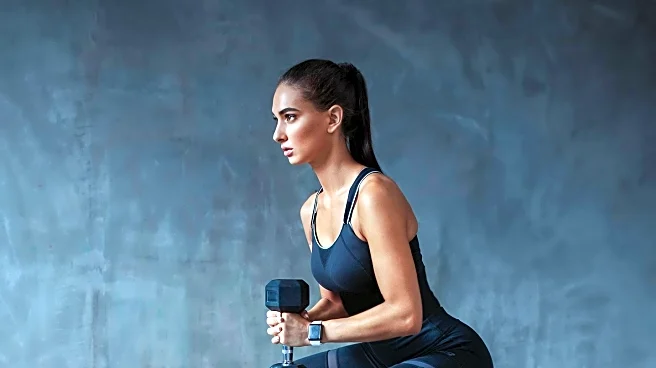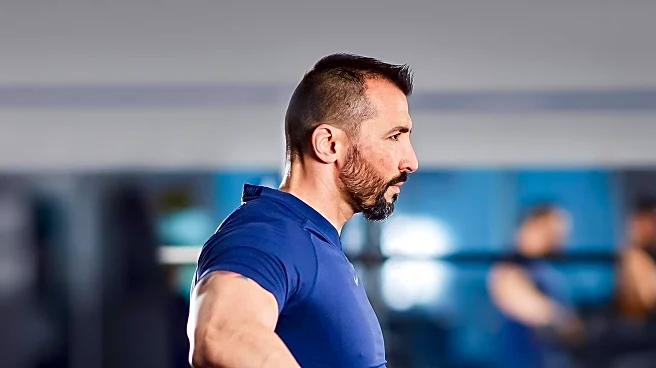What's Happening?
Stacey Simms, a leading exercise physiologist and nutrition scientist, emphasizes the importance of strength training for perimenopausal women. She advocates for compound movements that engage multiple muscle groups, such as squats, deadlifts, hip thrusts,
Bulgarian split squats, push-ups, and pull-ups. These exercises are designed to replicate daily functional movements and provide power, stability, and support for the spine and hips. Simms highlights the significance of maintaining a strong posterior chain to improve posture and reduce injury risk, particularly in the back. She advises women to focus on lifting heavier loads to work on power and strength, as hormonal changes can lead to rapid loss of these attributes.
Why It's Important?
Strength training is crucial for women as they age, particularly during perimenopause, when hormonal fluctuations can impact muscle mass and strength. By focusing on compound movements, women can enhance their functional fitness, improve posture, and reduce the risk of injuries. This approach not only supports physical health but also contributes to mental well-being by engaging the central nervous system. As women lose power and strength rapidly due to hormonal changes, targeted exercises can help mitigate these effects, promoting longevity and overall health.
What's Next?
Women are encouraged to phase into strength training gently, starting with lighter weights and gym machines to build a foundation. As they become more comfortable, they can progress to heavier loads and more complex movements. This gradual approach helps prevent injuries and ensures that women can safely enhance their strength and stability. Simms suggests incorporating mobility work to further support the transition into more intense strength training routines.
Beyond the Headlines
The emphasis on compound movements and strength training for perimenopausal women highlights a shift in fitness paradigms, where functional fitness and holistic health are prioritized over traditional exercise routines. This approach not only addresses physical health but also fosters a deeper mind-body connection, encouraging women to be more mindful of their bodies and their capabilities.















